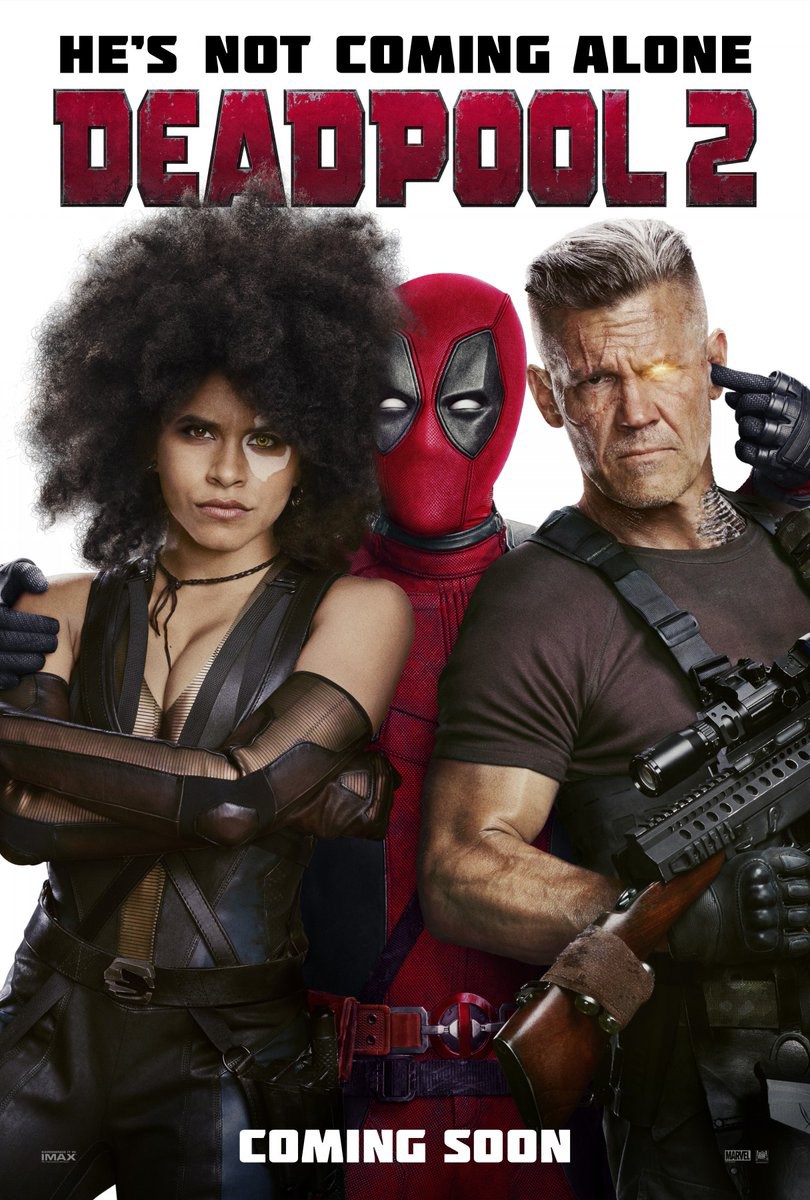Deadpool likes to position himself as the odd-man out of the superhero movie boom. His films proudly flaunt their R-rating, showering the screen with buckets of blood and mountains of cursing. The Deadpool character is presented as a sarcastic, wisecracking, almost-nihilistic force of cheap jokes and pop culture references. The films thumb their noses at the established superhero conventions of the day. The Deadpool franchise has drawn itself as the outsider of the superhero blockbuster genre. An outsider that rakes in hundreds of millions of dollars, breaks box office records, attracts millions of fans, and obeys every Hollywood screenwriting trope in the book.
Deadpool is a blunt character, so I will be equally straightforward: Deadpool (and its sequel) is as mainstream as any other Marvel movie; it just likes to pretend it isn’t.
I’m not here to bury the Merc with a Mouth. I enjoyed the first movie as much as anybody, and, despite some reservations, I liked its sequel. But the narrative surrounding these films is out of whack. The pop culture collective seems to venerate the Deadpool franchise as a bold innovator subverting our well-worn superhero tropes. But Deadpool rarely does this. It mocks the tropes, it giggles at the tropes, but it never upends the tropes. Deadpool laughs at a bevy of cliches right before it indulges in a buffet full of them. There’s a tonal imbalance in the first film that is never truly resolved.
Deadpool 2 tries to fix that problem by, paradoxically, amplifying it. D2 pumps up the violence, swearing, and pop culture references, while also offering a bizarrely sincere story about abuse, family, forgiveness, and trust. The film switches from jokes about the X-Men franchise to mournful contemplations on suicide and grief at the drop of a hat. There are plenty of laughs, but they’re tempered by an uneven, confused plot. D2 reaches greater heights than its predecessor, but that just gives it a longer distance to fall.
Wade Wilson (a consistently funny Ryan Reynolds) just wants to die. D2 opens with our snarky hero attempting to immolate himself. Since his mutant healing factor won’t let him perish, he joins the X-Men to give his life a sense of purpose. He encounters a rage-filled child mutant called Firefist who suffered at the hands of “mutant reformers” (thinly-veiled stand-ins for gay conversion therapy). Deadpool decides to protect the child when Cable (Josh Brolin) arrives from the future with one mission: Kill the kid for...complicated reasons.
It’s a simple plot, refreshingly personal instead of the typical apocalyptic stakes in most superhero movies. Deadpool’s goal of saving the kid gives the movie enough structure to cram in as many jokes as possible into its two-hour runtime.
D2 is a decidedly larger affair than the first film. There’s a greater emphasis on the ensemble cast, with returning co-stars Colossus and the sycophantic Dopinder receiving something resembling character arcs, while new character Domino (a solid Zazie Beetz) gets an entire scene to shine by herself. Perhaps it all ties into the theme of family or maybe it was just a veiled potshot at the Marvel team-up model (a joke which evokes the biggest laugh in the movie), but either way it mostly works thanks to the solid cast.
D2 also ups the ante by trying to have actual themes. D2 structures itself around the idea that broken people who section themselves off into isolation only create a feedback loop of destruction and pain; the only solution, D2 proposes, is family. Deadpool, Cable, and Firefist are all lonely people who need to find the courage to reach out to someone. D2 plays this idea completely straight, presenting several self-serious scenes without a drop of humour. It’s a nice-enough theme, but it does take out some of the movie’s satirical bite. D2 mocks superhero movies for their sincerity, then revels in its own sincerity. D2 wants to have its cake and eat it too, which makes for some messy storytelling.
D2 struggles with this imbalance in its first 20 minutes, crafting an awkward hybrid of cynical humour and overwrought drama. The film eventually establishes a decent rhythm, delivering some killer punchlines and action setpieces (director David Leitch is a godsend for D2’s fight scenes), but its clunky mix of irony and earnestness weight it down.
Tearing into the thematic and tonal problems in Deadpool 2 feels pointless when the film is so juvenile and irreverent. D2 brings a steady stream of jokes to the table, and while some don’t land, most elicit a chuckle at the very least. D2 is a worthy sequel to the original and a welcome dose of R-rated debauchery in the superhero landscape. If they make a Deadpool 3, let’s hope they can strike a better balance between serious drama and gags about chimichangas.




